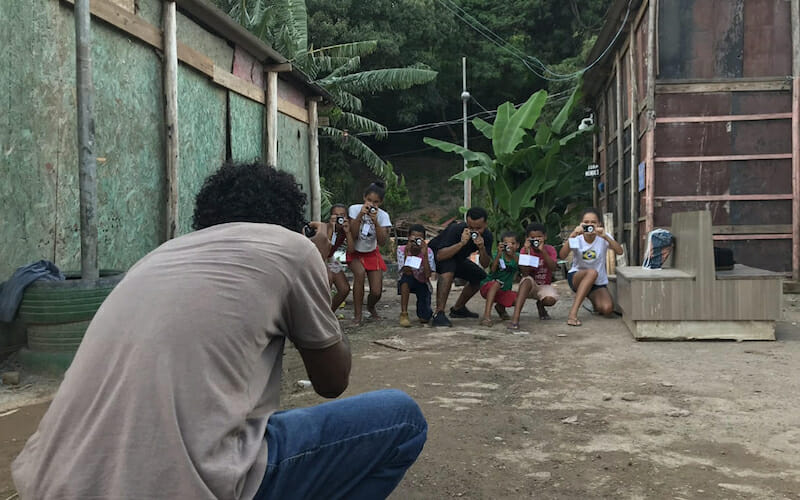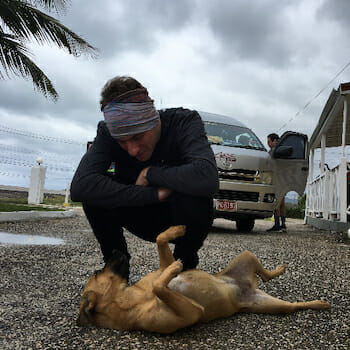
Finding Space for Early Childhood Development in São Paulo
Skyscrapers emblazoned in color and streets that pour in from every direction but up. From luxury-pad high-rises, I could see an endless night skyline, and from our hostel, hear screams for help as an unassuming pedestrian gets mugged. The persistence of petty crime is just as prevalent as the city’s dedication to art, hard work, and devotion to free expression. This was my initial reaction to Sao Paulo, before our group’s trip to the southeastern edge of the metropolis. It was here, where I learned we just narrowly scratched the surface.
The purpose of this trip was to implement a youth-focused, participatory photo-mapping exercise within one of Sao Paulo’s most marginalized districts, Capão Redondo. The children thoroughly enjoyed each activity, whether planned or unplanned. They particularly enjoyed the photography portion, wherein each had a camera of their own, and for one week, were able to take photos of their respective surroundings. While the greater purpose of this assessment was to provide a physical map for enhanced local-NGO coordination, we learned significantly more than we anticipated.
Many of the children are raised without fathers and in many cases, by a mother who is loosely present and typically at work throughout the day. I learned a new definition of “adult.” Unlike in the West, where an adult is usually defined by their age, the title here is granted once one assumes the role of a parent; biological, or in the form of a caretaker, at any age. In our family interviews we encountered many who assumed this role, eldest sibling to the director of a local NGO, Maria.
Maria assumed this position part-time only a few years prior. She has now turned it into a full-time project, alongside her close friend, Gerard. These two run a youth-development center that focuses their outreach within the extremely dense favelas of Capão Redondo, SP. Through them, we were able to interact with an endless influx of the children and interview their families daily. We set out to capture the root of vulnerability to drugs, violence, and limited access to opportunities within their communities. We learned many attribute vulnerability to a large disconnect with the municipal government, the urban core, and disinvestment into the community. Through an external lens, many would agree without hesitation. Although, one may argue these are significant problems that require years of research and attention to properly address. From an internal perspective, we found something else, a solution, through the lens of our focus, the children.
There were pictures of food, plants, art, and open-spaces. While it is essential to consider education and future employment opportunities, we must acknowledge the role of a proper childhood. These children, just like every single other child across the globe, simply desired a space to play and some beautiful scenery. In many cases, that was too much to ask. That is why organizations such as Maria and Gerard’s continue to respond to the call. Without early exposure to life’s more beautiful moments, these children are forced to face the unfiltered environment we walked into on our first day, without context. Such an environment can mold the very person that contributes to an unsavory lifestyle; the type that adds to a perpetual cycle of violence and drug-use that left this community labeled the world’s most dangerous a decade before.
Granted a care-free childhood, these children can learn from their peers and the environment, make mistakes when they can still get away with them. There are just as many opportunities to learn from the real world as there are to learn from the classroom, especially at an early age; how to deal with bullies, how to make a friend, or how to be one. These are all small skills, only reasonably attainable in youth, yet vehemently necessary to navigate a volatile climate in the future.
To receive updates from and contribute to the programs that currently operate in the Capão Redondo region, follow Access Sao Paulo, Base Colaborativa and N.A.V.E., today.
Subject’s names have been changed to protect their own identities.

